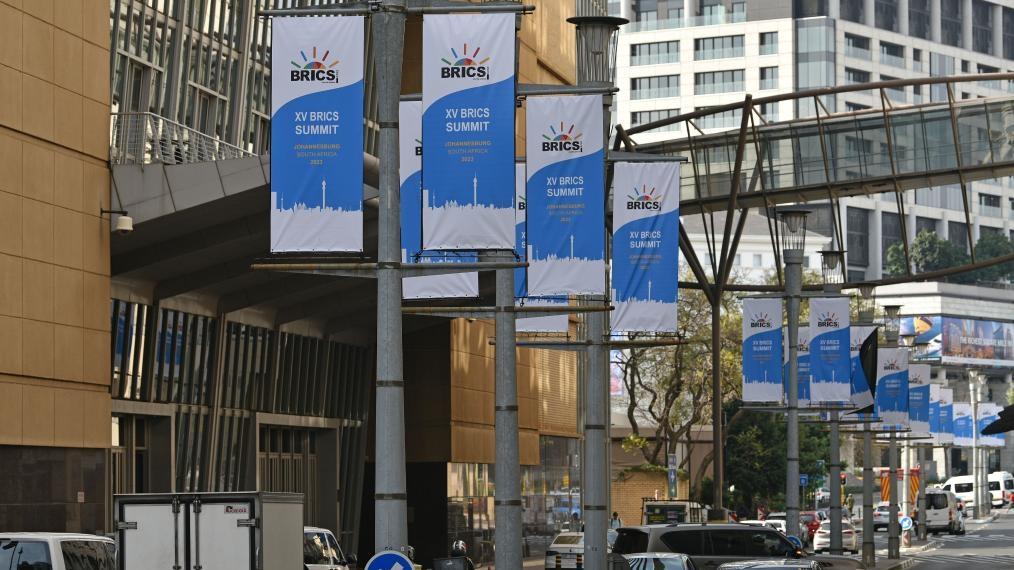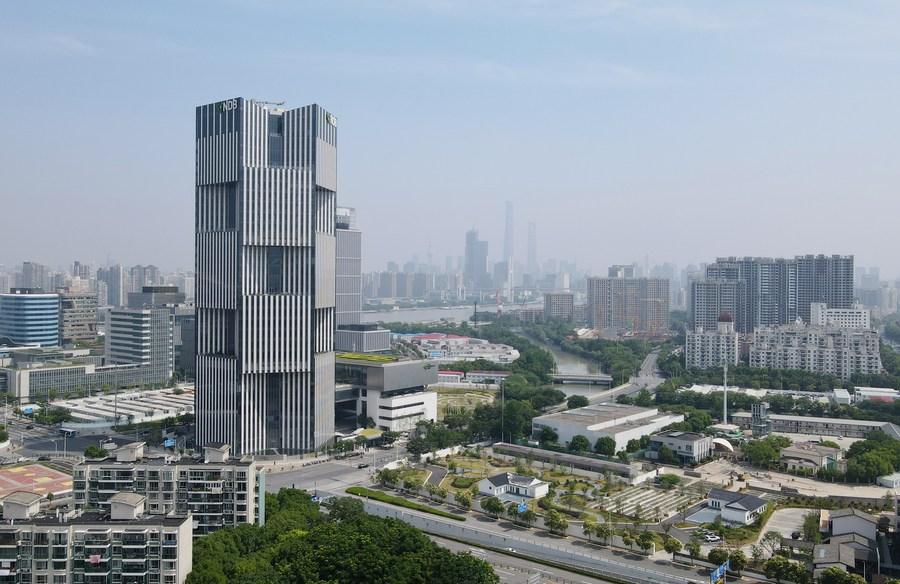
Signboards of the 15th BRICS summit are seen in a street of Johannesburg, South Africa, August 17, 2023. [Photo/Xinhua]
By Yaroslav Lissovolik
The 15th BRICS summit in South Africa is set to bring major changes to the global economic landscape as the bloc is preparing to unleash an expansion that may result in a significant increase in its economic weight and influence on the international arena.
China-proposed "BRICS Plus" cooperation approach launched in 2017 is bearing its fruits as dozens of developing economies have enthusiastically responded to the openness of the bloc, expressing their desire to join the grouping. We are witnessing what may be termed the "BRICS Plus moment" in the evolution of the BRICS bloc as the summit's decisions on expansion are likely to impact not only the development trends across the Global South but also across the entire world economy.
One notable merit in China's determination to expand the current BRICS membership is that it reaffirms the principle of openness of the BRICS as a bloc, including its very core. This expansion in the core membership is likely to be also complemented by other forms of cooperation with developing economies under the umbrella of the BRICS Plus framework. In particular, there is the option of creating a "circle of friends" that have observer status and/or are regular participants in BRICS Plus summits.
Another important track in the BRICS expansion process is the widening membership of the New Development Bank. There will be a need to accord priority to African economies, especially large land-locked economies (such as Ethiopia) that require greater infrastructural connectivity. The green agenda as well as digital development should also be high on the agenda of this key BRICS development institution.

The headquarters building of the New Development Bank (NDB), also known as the BRICS bank, in east China's Shanghai, June 17, 2022. [Photo/Xinhua]
In terms of the possible candidates for expansion, two economies stand out in terms of their regional role and prospective role in the global economy – Indonesia in South East Asia and Saudi Arabia in the Middle East. These two economies are also the leading players in their respective regional integration blocks – Indonesia in the Association of Southeast Asian Nations and Saudi Arabia in the Gulf Cooperation Council.
In the case of Saudi Arabia, this is a key player in the global energy space for decades to come; in the case of Indonesia, it is one of the largest developing economies by gross domestic product and population in the next several decades.
Another important aspect of the BRICS summit in 2023 is the closer cooperation between BRICS and the African continent. Apart from the sheer number of African economies attending the summit, there will be a need to channel this cooperation into pragmatic trajectories. Most importantly, the BRICS economies need to support Africa's efforts in launching the African Continental Free Trade Area – and the best way for this to be done is via lower import tariffs in BRICS core members for African countries.
There will be other important issues discussed at the BRICS summit, including the issue of the creation of a new global currency. While it is unlikely that such a currency is going to emerge in the course of this year, the exchange of views among BRICS leaders will likely set the stage for a gradual progression of the use of national currencies and alternative payment mechanisms. These developments together with greater trade turnover and investment among the BRICS Plus economies will provide a stronger foundation for launching a common BRICS currency.
The importance of the themes discussed at the summit will make this event one of the highlights of the year for the global economy. Issues such as BRICS expansion and discussions on the creation of a new currency will be tracked closely by global markets.
The BRICS economies, while forging ahead with creating new frameworks and platforms, will also express support for multilateral institutions such as the World Trade Organization. This emphasis on multilateralism that lies at the core of BRICS principles will be a crucial signal to the global community concerning the development paradigm that is going to be advanced by BRICS Plus.
In the end, the BRICS appears now to be firmly on track towards greater openness and expansion. There will likely be new expansion venues that are going to be explored by the BRICS – one is the "integration of integrations" that brings together the main regional integration arrangements in which BRICS countries are members. Another possibility will be a "BRICS Plus" format that allows for the regional blocks and regional development institutions with the participation of advanced economies (Regional Comprehensive Economic Partnership and Asian Development Bank for example) to take part in BRICS summit discussions.
The BRICS expansion process is only starting in earnest and these new stages of BRICS Plus development may provide new platforms for a revitalized globalization effort that is more sustainable and inclusive compared to the unipolar patterns of the past.
Yaroslav Lissovolik, founder of "BRICS+ Analytics," is a member of the Russian International Affairs Council (RIAC).

 中文
中文



